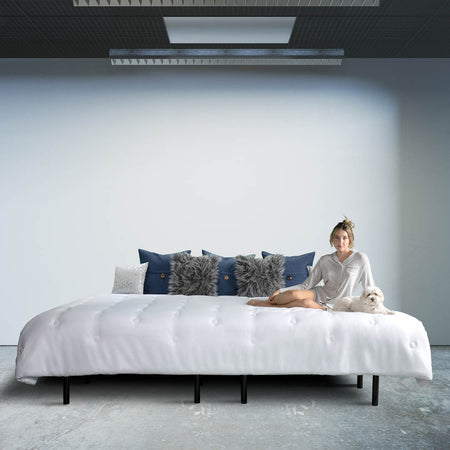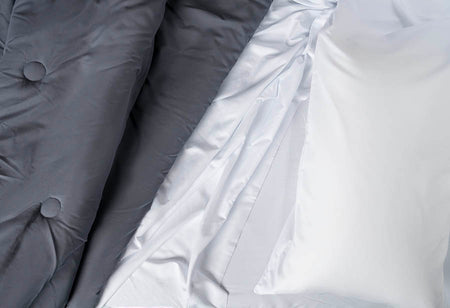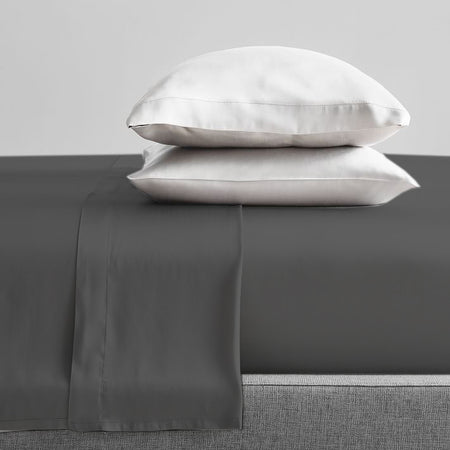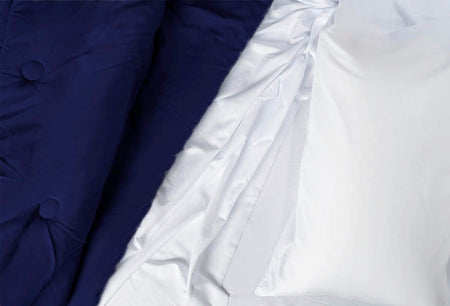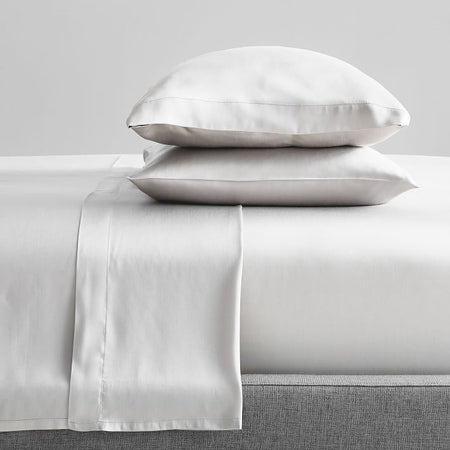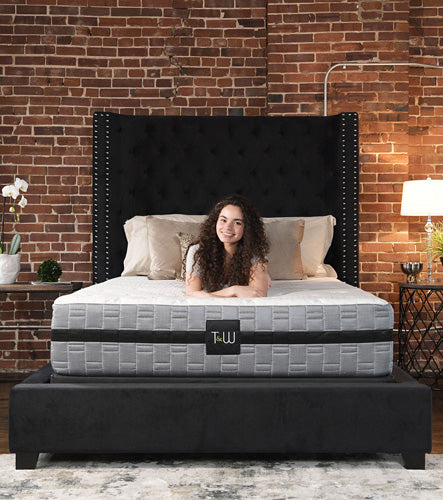Your comfort pretty much depends on the firmness level of your mattress. For a pleasant sleep comfort, your mattress should neither be too soft or too hard. Striking a balance between the two is the best way to ensure spine and back support, pressure relief, and a good night’s sleep.
Firmness matters because it determines the comfort. Comfort makes bedtime a joy. It also determines whether or not you wake up with pains and aches. If you spend your nights in an uncomfortable position or tossing around trying to get comfortable, it’s only a matter of time before you start feeling the effects.
What is mattress firmness?

Firmness refers to how hard or soft a mattress feels. Factors like construction and materials influence how a mattress feels. Mattress firmness is measured on a scale of 1 to 10: 1 being an extremely soft sleeping surface and 10 a very hard surface. Most mattresses fall between firmness levels of 2 and 8. Regarding performance:
Softer mattresses with ratings 1-3
- Offer good support for lightweight individuals (weighing less than 130 pounds)
- Conform closely to the body
- Have shorter lifespan because of the materials
- Tend to cost more
Medium mattresses with ratings 4-6
- Provide stable, adequate support and surface comfort (ideal for people weighing 130-230 pounds)
- Offer a balance of support and cushioning for moderate, consistent body contouring
- Outlast softer mattresses but aren’t as long-lasting as firm beds tend to be cheaper than softer mattresses
Firm mattresses with ratings 7-10
- Have a firm feel and sink very little (making them suitable for heavy people weighing 230 pounds and more)
- Have thin comfort layers and only conforms to a small extent
- Have the longest lifespan thanks to the dense materials and resistance to sagging, indentations, etc.
- Tend to be cheaper than medium and soft mattresses
Support or firmness
Firmness shouldn’t be confused for support. While the terms are used interchangeably, firmness is all about how the mattress feels when you try lying down on it. Support is how well the mattress aligns your spine.

So, you can choose a mattress that’s soft and still get full support, or one that’s firm and get no support at all – and vice versa.
Keep in mind, firmness is about the feel. So, does the mattress feel comfortable to you? Does it relieve pressure? Does it have a lot of pushback or cushioning?
Firmness and sleep position
There are four different sleep positions, including back, side, stomach, and combo. Here’s how to choose firmness based on your sleep position:
Best mattresses for side sleepers
If you are a side sleeper, you’ll feel more comfortable on a softer mattress. That’s because you’ll need extra cushioning at the shoulders and hips, which naturally press more into the mattress.
An excessively firm mattress won’t relieve pressure points, causing the spine to become uneven. This may lead to pains and aches. So, the best range of firmness should be 2-7, depending on your body weight.
Best mattresses for back sleepers
Generally speaking, firmer mattresses do a great job at keeping the spine aligned for back sleepers. But you want to ensure the mattress still supports the shoulders and hips without placing a lot of pressure on them. As a back sleeper, you should consider a mattress firmness that’s medium to slightly firm, which is about 5 – 7.

Best mattresses for stomach sleepers
Stomach sleepers need a mattress that supports the spine, prevents back and neck pain, and improves sleep quality. This is especially true since stomach sleeping flattens the natural curve of your spine, thereby putting the most pressure on the spine and joints. It also causes you to turn your neck which can lead to upper back and neck pain. A mattress within a range of 3 – 8 can provide adequate support for this sleeping position.
Best mattress for combo sleepers
If you are a combination sleeper, you mix back, stomach, and/or side, making it pretty hard to know which mattress firmness works well. However, the safest bet would be to go for moderate firmness setting – like 4 – 6 for comfort, pressure relief, firmness and support.
Other firmness factors to consider
Potential for odor
New mattresses may emit odor during the off-gassing. But softer mattresses made from synthetic substances like polyfoam and memory foam are more prone to off-gassing than latex or metal coil materials. Softer mattresses also have a higher potential for unpleasant odor.
Comfort preferences

Comfort is subjective. So, it’s best to compare your experiences sleeping on different mattresses to see what you like. For example, you can compare how comfortable sleeping on your current mattress is to how it’s like in hotels or other mattresses.
You might be a side sleeper but prefer a firmer mattress, and so on. If you’re shopping physically, you might want to try out the mattress to determine the levels of comfort and support it provides before buying.
Body type
Your body type, including weight and size, will influence the type of firmness to go with. Generally, heavier people opt for firmer mattresses, as soft ones sink too much for comfort and support. On the other hand, lighter people prefer soft to medium because they sink less in a firm mattress, it becomes uncomfortable.
With these tips, you should pick the right mattress firmness for your body type and preferences. However, if you have a hard time deciding or would like to learn more about mattress firmness, contact us today!




